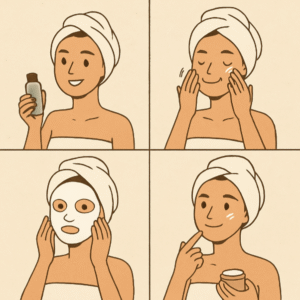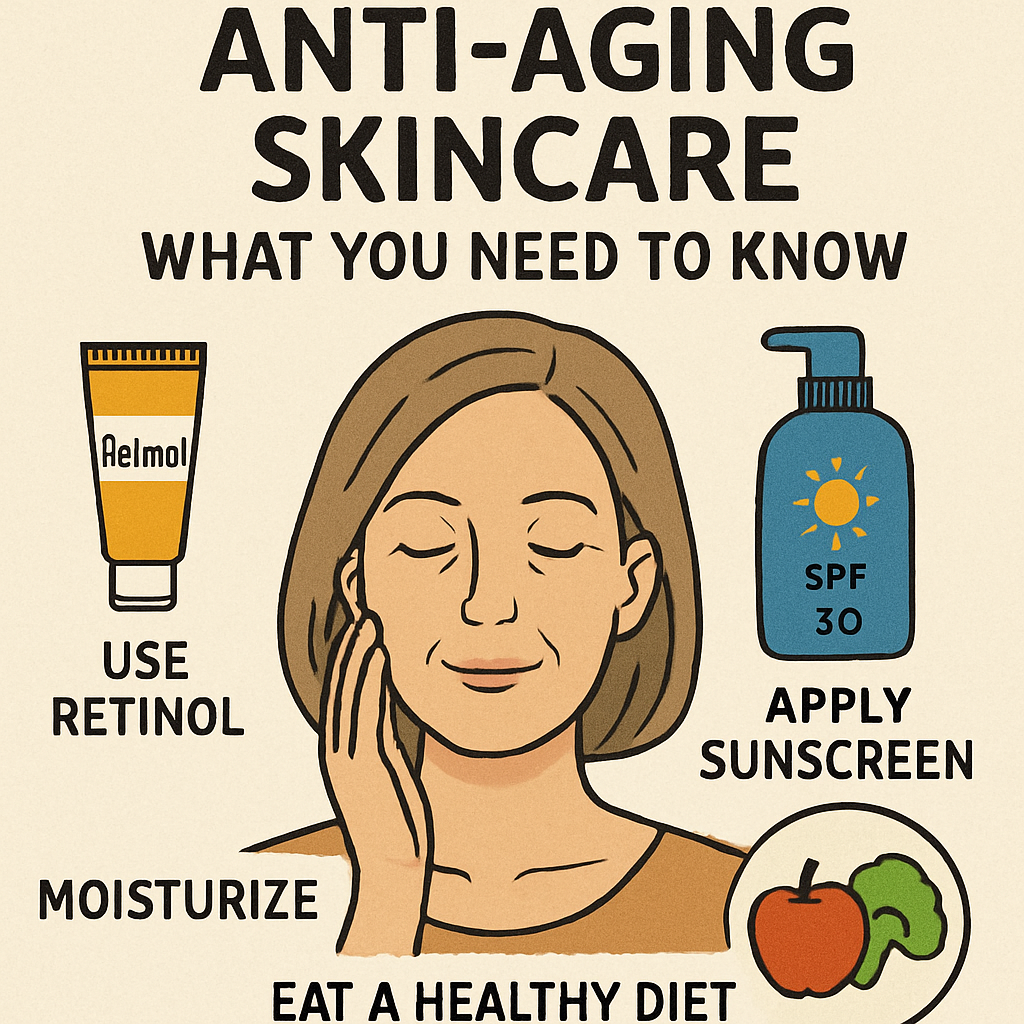Anti-aging, at its core, refers to strategies and products aimed at slowing down or reversing the physical signs of aging. However, contemporary interpretations have expanded to emphasize maintaining health and vitality as one ages. Instead of focusing solely on eradicating wrinkles or fine lines, the modern anti-aging discourse embraces a balanced lifestyle that includes proper nutrition, mental well-being, and self-care practices.
The Evolution of Anti-Aging
Historically, the anti-aging narrative was predominantly focused on superficial treatments that promised quick fixes. Today, there’s a shift towards understanding aging as a natural process that can be managed through comprehensive wellness practices. This evolution is not just a trend but a reflection of scientific advancements and a societal push towards health-conscious living.
Holistic Approach to Aging
A holistic approach to anti-aging goes beyond skin-deep solutions. It integrates physical, mental, and emotional well-being, recognizing that stress, lifestyle choices, and environmental factors all contribute to how we age. This approach encourages the adoption of healthier habits, such as balanced nutrition, regular physical activity, and mindfulness, which collectively contribute to longevity and vitality.
Embracing Aging as a Positive Process
Embracing aging involves accepting and celebrating the changes that come with it. This mindset shift encourages individuals to focus on the positives of aging, such as increased wisdom and life experiences, rather than solely on the physical changes. By fostering a positive attitude towards aging, individuals can enjoy a more fulfilling and enriched life, with self-acceptance at the forefront.
Skin Rejuvenation Techniques

As the demand for effective skincare solutions rises, various skin rejuvenation techniques have emerged, offering individuals multiple pathways to maintain a youthful glow.
Topical Treatments: Ingredients and Benefits
A wide range of topical treatments claim to support skin rejuvenation. Ingredients such as retinoids, hyaluronic acid, and peptides are heralded for their ability to boost collagen production, hydrate the skin, and promote cell turnover. These products form the foundation of many anti-aging skincare routines, providing visible results with consistent use.
- Retinoids: Known for their ability to accelerate cell turnover and stimulate collagen production, retinoids are a cornerstone in anti-aging skincare. They help reduce the appearance of fine lines and improve skin texture, promoting a smoother, more youthful complexion.
- Hyaluronic Acid: This powerful humectant draws moisture into the skin, providing intense hydration that plumps and firms the skin. Its ability to retain moisture makes it an essential ingredient for maintaining skin elasticity and minimizing the appearance of wrinkles.
- Peptides: These short chains of amino acids act as building blocks for proteins like collagen and elastin. Peptides signal the skin to produce more collagen, leading to firmer, more resilient skin over time.
Non-Invasive Procedures: Safe and Effective Options
The allure of non-invasive procedures has grown as consumers seek effective yet low-risk methods of enhancing their appearance. Treatments like chemical peels, microdermabrasion, and laser therapy can offer significant improvements in skin texture and tone without the downtime associated with surgical options.
- Chemical Peels: By applying a chemical solution that exfoliates the skin, chemical peels help remove dead skin cells and promote new cell growth. This results in brighter, smoother skin with improved tone and clarity.
- Microdermabrasion: A minimally invasive procedure that gently sands the skin, microdermabrasion removes the thicker, uneven outer layer. It’s used to treat light scarring, discoloration, and sun damage, revealing a fresher, healthier-looking complexion.
- Laser Therapy: Utilizing focused light, laser therapy can target specific skin concerns such as age spots, acne scars, and wrinkles. By stimulating collagen production, lasers enhance skin texture and elasticity, offering a rejuvenated appearance.
Advanced Therapies: Innovative Solutions
For those seeking more dramatic results, advanced therapies such as radiofrequency treatments and ultrasound skin tightening offer promising outcomes. These technologies work by stimulating collagen production deep within the skin, promoting a firmer and more youthful appearance over time.
- Radiofrequency Treatments: This technology uses radiofrequency energy to heat the skin’s deeper layers, encouraging collagen production and tissue tightening. It’s effective for reducing sagging and improving skin firmness without invasive surgery.
- Ultrasound Skin Tightening: Using ultrasound energy, this therapy penetrates deep into the skin to stimulate collagen production. It’s particularly effective for lifting and tightening areas like the neck, chin, and brow, providing a non-surgical facelift effect.
- Cryotherapy: An emerging trend in skincare, cryotherapy involves exposing the skin to extremely cold temperatures to stimulate collagen and elastin production. This process helps reduce inflammation and puffiness, resulting in a firmer, more youthful appearance.
The Role of Lifestyle in Anti-Aging
While skincare products and procedures are valuable tools, they are most effective when complemented by a holistic lifestyle approach.
Nutrition and Hydration: Building Blocks of Healthy Skin
Diet plays a critical role in maintaining skin health. Antioxidant-rich foods, such as berries, nuts, and leafy greens, can help combat oxidative stress, a significant contributor to skin aging. Adequate hydration is equally important, as it supports cellular function and helps maintain skin elasticity.
- Antioxidant Powerhouses: Consuming a diet rich in antioxidants helps neutralize free radicals, reducing oxidative stress and preventing premature aging. Foods like blueberries, spinach, and dark chocolate are excellent sources of antioxidants that promote skin health.
- Hydration Essentials: Drinking enough water is crucial for maintaining skin moisture and elasticity. Staying hydrated helps flush out toxins and ensures that skin cells function optimally, leading to a plump and radiant complexion.
- Omega-3 Fatty Acids: Found in foods like salmon, walnuts, and flaxseeds, omega-3 fatty acids support skin barrier function and reduce inflammation. Incorporating these healthy fats into your diet can enhance skin hydration and reduce the appearance of wrinkles.
Stress Management and Sleep: Restorative Practices
Chronic stress and insufficient sleep can accelerate the aging process by disrupting hormonal balance and impairing the body’s ability to repair itself. Incorporating stress-reduction techniques, such as meditation or yoga, alongside ensuring sufficient restful sleep, can bolster one’s anti-aging efforts.
- Mindful Meditation: Practicing mindfulness through meditation can significantly reduce stress levels, promoting mental clarity and emotional balance. Regular meditation fosters a calm state of mind, which can positively impact skin health by reducing stress-related breakouts and inflammation.
- Restorative Yoga: Engaging in yoga helps relax the mind and body, improving flexibility and circulation. The deep breathing techniques and gentle movements associated with yoga can enhance skin vitality by increasing oxygen flow and reducing stress.
- Quality Sleep: Prioritizing sleep is essential for the body’s repair and regeneration processes. Aim for 7-9 hours of quality sleep each night to support collagen production and skin cell turnover, ensuring a refreshed and youthful appearance.
Consumer Behavior and Wellness Trends

Understanding the broader wellness trends that influence consumer behavior is essential for those involved in product development, journalism, or coaching within the health and wellness sector.
The Rise of Personalized Skincare: Tailoring Solutions
The demand for personalized skincare solutions has grown as consumers become more informed and discerning. Tailored products that consider individual skin types, concerns, and lifestyle factors are becoming increasingly popular, reflecting a broader trend toward customization in the wellness industry.
- Customized Formulations: Personalized skincare products are formulated based on individual assessments, providing solutions that address specific skin concerns. This approach ensures that each product is optimized for the user’s unique needs, leading to more effective and satisfying results.
- Consumer Empowerment: With access to more information, consumers are empowered to make informed decisions about their skincare routines. They seek products that align with their values and preferences, driving the demand for transparency and authenticity in the skincare industry.
- Technology and Innovation: Advances in technology, such as AI-driven diagnostics and DNA-based skincare, are paving the way for hyper-personalized solutions. These innovations enable brands to offer precise recommendations, enhancing the consumer experience and satisfaction.
The Intersection of Wellness and Identity: Expressing Individuality
Skincare and wellness practices are increasingly viewed as expressions of personal identity. This shift underscores the importance of authenticity and transparency in product marketing and communication, as consumers seek brands that align with their values and lifestyle choices.
- Cultural Relevance: Skincare is no longer just about aesthetics; it’s a reflection of cultural and social identity. Consumers are drawn to brands that resonate with their cultural heritage and values, seeking products that honor diversity and inclusivity.
- Authenticity in Branding: Brands that prioritize transparency and authenticity in their messaging are more likely to build trust and loyalty among consumers. By aligning with the values and lifestyles of their audience, these brands can foster deeper connections and enhance brand equity.
- Social Media Influence: Platforms like Instagram and TikTok have become powerful tools for expressing personal identity through skincare rituals. Influencers and consumers alike share their journeys, inspiring others and contributing to the broader narrative of self-expression and empowerment.
Sustainability and Ethical Considerations: Conscious Choices
Consumers are also prioritizing sustainability and ethical considerations when selecting skincare products. Brands that demonstrate a commitment to eco-friendly practices and cruelty-free formulations are likely to resonate with the growing segment of socially conscious consumers.
- Eco-Friendly Packaging: As environmental awareness increases, consumers are gravitating towards products with sustainable packaging. Brands that utilize recyclable or biodegradable materials appeal to eco-conscious buyers who value reducing their environmental footprint.
- Cruelty-Free Formulations: Ethical considerations are paramount for many consumers, with a growing demand for cruelty-free and vegan products. Brands that prioritize ethical sourcing and manufacturing processes are more likely to attract socially responsible consumers.
- Transparency in Sourcing: Consumers are increasingly interested in the origins of the ingredients used in their skincare products. Brands that provide clear information about sourcing practices and ingredient origins are better positioned to build trust and credibility.
Practical Applications for Industry Professionals
For wellness product developers, lifestyle magazine editors, and health and wellness coaches, the insights into anti-aging skincare and broader wellness trends can be translated into actionable strategies.
Innovating Product Offerings: Meeting Evolving Needs
By integrating the latest scientific research and consumer preferences, product developers can create innovative offerings that align with contemporary lifestyle trends. Focusing on natural ingredients, personalized formulations, and sustainable packaging can enhance product appeal and marketability.
- Natural and Organic Ingredients: There’s a growing demand for products that harness the power of nature. By incorporating natural and organic ingredients, brands can cater to health-conscious consumers seeking clean and safe skincare solutions.
- Sustainable Innovation: Emphasizing sustainability in product development can differentiate brands in a competitive market. By adopting eco-friendly practices and materials, developers can appeal to environmentally aware consumers and contribute to a more sustainable future.
- Adaptive Formulas: Developing adaptive formulas that respond to changing environmental conditions or skin needs can offer consumers a dynamic and responsive skincare experience. This innovation can set brands apart by providing tailored solutions that evolve with the user.
Crafting Engaging Content: Captivating Audiences
Editors can leverage the evolving dynamics of wellness to produce compelling content that resonates with readers. Highlighting the intersection of skincare practices with cultural and social trends can provide fresh perspectives and maintain audience engagement.
- Storytelling and Education: By weaving storytelling with educational content, editors can create engaging narratives that inform and inspire readers. This approach helps demystify complex skincare topics while connecting with audiences on a personal level.
- Visual and Interactive Content: Utilizing visual elements such as infographics, videos, and interactive content can enhance reader engagement. These formats provide dynamic ways to present information, making it more accessible and appealing to diverse audiences.
- Trendspotting and Insights: Keeping a pulse on emerging trends and consumer behaviors allows editors to deliver timely and relevant content. By offering insights into the latest developments in skincare and wellness, publications can position themselves as trusted sources of information.
Tailoring Client Strategies: Personalized Guidance
Health and wellness coaches can incorporate these insights into their practice by crafting personalized, trend-sensitive strategies that cater to clients’ unique needs and preferences. By staying informed about the latest developments in skincare and wellness, coaches can offer valuable guidance that supports clients’ holistic well-being.
- Personalized Wellness Plans: Coaches can develop comprehensive wellness plans that address individual client goals, integrating skincare, nutrition, and lifestyle strategies. This personalized approach ensures that clients receive tailored guidance that aligns with their unique needs.
- Empowering Education: Educating clients about the benefits of holistic anti-aging practices empowers them to make informed choices. By providing evidence-based information and resources, coaches can support clients in adopting sustainable and effective wellness habits.
- Continuous Support and Adaptation: Offering ongoing support and adapting strategies as clients’ needs evolve is crucial for long-term success. By maintaining open communication and regularly assessing progress, coaches can ensure that clients stay motivated and achieve their anti-aging goals.
Conclusion
The world of anti-aging skincare is multifaceted, encompassing a blend of science, lifestyle, and cultural trends. By understanding the nuances of this field, industry professionals can navigate the shifting landscape with confidence, crafting strategies and products that resonate with consumers’ evolving needs and desires.
Embracing a comprehensive approach to aging gracefully allows individuals to not only enhance their appearance but also cultivate a sense of well-being that extends beyond skin-deep. As the wellness industry continues to grow, staying attuned to these trends will remain crucial for those seeking to make a meaningful impact in the field.
By fostering a positive perspective on aging and leveraging innovative skincare solutions, individuals and industry professionals alike can contribute to a more inclusive and empowering narrative that celebrates the beauty of aging at every stage of life.




